Women remain underrepresented in research and may receive less funding than men, according to a recent study that describes differences in sex representation among U.S. National Institutes of Health study sections.

Subcategories:AwardsCareer Development
Career Corner: Whether you're a new rheumatology fellow, an experienced academic rheumatologist, a researcher or a rheumatologist in private practice, you'll find resources in the articles here designed to help you at every stage of your career. You can find information on academic vs. private practice, how to navigate an employment offer, compensation models, noncompete agreements and even tips for selling your practice.
In addition, be sure to review the ACR's career resources: ACR CareerConnection and FIT Career Roadmap.

Women remain underrepresented in research and may receive less funding than men, according to a recent study that describes differences in sex representation among U.S. National Institutes of Health study sections.
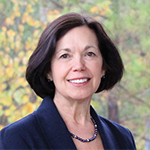
Leigh Callahan, PhD, Now President Elect of United States Bone & Joint Initiative After 20 years of involvement with the U.S. Bone and Joint Initiative (USBJI), Leigh F. Callahan, PhD, Mary Link Briggs Distinguished Professor of Medicine, associate director, Thurston Arthritis Research Center, and director, Osteoarthritis Action Alliance at the University of North Carolina at…
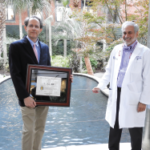
Catherine Bennett |
The Medical University of South Carolina (MUSC), Charleston, has established a $1 million endowed chair to support world-class autoimmune research and scholarship. The Silver chair is a tribute to the distinguished career and contributions of former Rheumatology & Immunology Division Director Richard M. Silver, MD, MACR, distinguished university professor and active division member. The inaugural holder…
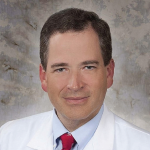
New Appointments for Carlos Lozada, MD In the midst of the coronavirus pandemic, Carlos J. Lozada, MD, FACP, FACR, professor of clinical medicine, University of Miami Miller School of Medicine, has expanded his professional and volunteer duties. In May he was appointed chief (interim) of the Division of Rheumatology at the Miller School of Medicine,…

During ACR Convergence 2020 in early November, the ACR and ARP honored a group of distinguished individuals who have made significant contributions to rheumatology research, education and patient care. This month, The Rheumatologist speaks with the winners of the ARP Merit Awards and the ACR’s Distinguished Fellows. In addition, we bring you the first ever…
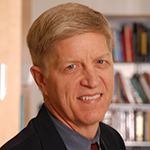
Presidential Gold Medal The highest award the ACR can bestow, the Presidential Gold Medal is awarded in recognition of outstanding achievements in rheumatology over an entire career. This year’s award went to James O’Dell, MD, the Stokes-Shackleford Professor of Internal Medicine, vice chair of internal medicine and chief of the Division of Rheumatology at the…
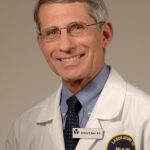
ACR CONVERGENCE 2020—At the ACR’s fully virtual annual meeting on Saturday, Nov. 7, ACR President Ellen M. Gravallese, MD, chief of the Division of Rheumatology, Inflammation and Immunity at Brigham and Women’s Hospital, Boston, presented the inaugural ACR Distinguished Global Public Health Award to Anthony S. Fauci, MD, director of the National Institute of Allergy…

S. Louis Bridges Jr., MD, PhD, Moves to New York S. Louis Bridges Jr., MD, PhD, became the new physician in chief and chair of the Department of Medicine, Hospital for Special Surgery (HSS), New York, on Sept. 1. He will also serve as the chief of rheumatology at Weill Cornell College of Medicine. Prior…
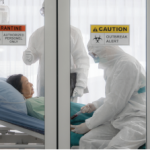
Nicole K. Zagelbaum Ward, DO, MPH, with Richard S. Panush, MD, MACP, MACR |
Some have opined, cynically, that transformative changes will not come to medical education and training, and to healthcare, until pigs fly. Well, in 2009–10, “swine flu,” and now we are in the midst of an unprecedented and disruptive pandemic, affecting virtually all aspects of our lives, including fellowships.1 As someone who started a rheumatology fellowship…

Bethany Marston, MD, & Jason Kolfenbach, MD |
For most doctors, fellowship training represents the final two to three years of formal medical education, and recognition of the unique opportunities of this time period can help aspiring rheumatologists get the most out of their fellowship. Fellowship training is inherently different than residency training, with less structured time, smaller teams (often consisting of only…